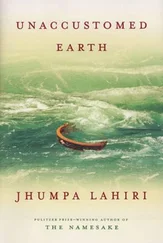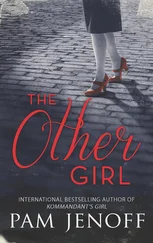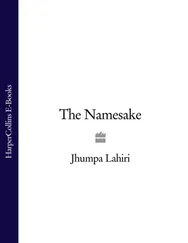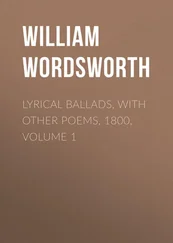I don’t think so. When I read in Italian, I’m a more active reader, more involved, even if less skilled. I like the effort. I prefer the limitations. I know that in some way my ignorance is useful to me. 
I realize that in spite of the limitations the horizon is boundless. Reading in another language implies a perpetual state of growth, of possibility. I know that, since I’m an apprentice, my work will never end.
When you’re in love, you want to live forever. You want the emotion, the excitement you feel to last. Reading in Italian arouses a similar longing in me. I don’t want to die, because my death would mean the end of my discovery of the language. Because every day there will be a new word to learn. Thus true love can represent eternity.
Every day, when I read, I find new words. Something to underline, then transfer to the notebook. It makes me think of a gardener pulling weeds. I know that my work, just like the gardener’s, is ultimately folly. Something desperate. Almost, I would say, a Sisyphean task. It’s impossible for the gardener to control nature perfectly. In the same way it’s impossible for me, no matter how intense my desire, to know every Italian word. 
But between the gardener and me there is a fundamental difference. The gardener doesn’t want the weeds. They are to be pulled up, thrown away. I, on the other hand, gather up the words. I want to hold them in my hand, I want to possess them.
When I discover a different way to express something, I feel a kind of ecstasy. Unknown words present a dizzying yet fertile abyss. An abyss containing everything that escapes me, everything possible.

I’m constantly hunting for words.
I would describe the process like this: every day I go into the woods carrying a basket. I find words all around: on the trees, in the bushes, on the ground (in reality: on the street, during conversations, while I read). I gather as many as possible. But it’s never enough; I have an insatiable appetite.
I gather words that seem obscure ( sciagura, spigliatezza: disaster, casualness) and ones that I can easily understand but would like to know better ( inviperito, stralunato: incensed, out of one’s wits). I gather beautiful words that have no exact equivalents in English ( formicolare, chiarore: to move in a confused fashion, like ants, and also to have pins and needles; shaft of light). I gather countless adjectives ( malmesso, plumbeo, impiastricciate: shabby, leaden, smeared) to describe thousands of situations. I gather countless nouns and adverbs that I will never use. 
At the end of the day the basket is heavy, overflowing. I feel loaded down, wealthy, in high spirits. My words seem more valuable than money. I am like a beggar who finds a pile of gold, a bag of jewels.
But when I come out of the woods, when I see the basket, scarcely a handful of words remain. The majority disappear. They vanish into thin air, they flow like water between my fingers. Because the basket is memory, and memory betrays me, memory doesn’t hold up.
I feel a bond with every word I pick up. I feel affection, along with a sense of responsibility. When I can’t remember words, I fear I’ve abandoned them. 
I feel emptied, depressed, the way you feel the morning after a fabulous dream. The woods seem like a paradise, a hallucination. Then I wake up.
Although defeated, I don’t feel too discouraged. If anything, I feel even more determined. The next day, I return to the woods. I don’t think my project is a waste of time. I know that its beauty lies in the act of gathering, not in the result.
Yet it’s not sufficient, or even satisfying, merely to collect words in the notebook. I want to use them. I want to draw on them when I need them. I want to be in contact with them. I want them to become a part of me. 
I review the words in order to learn them, memorize them. I think about them while I’m talking to someone. I know they’re there, written by hand in the notebook. If I were a genius, I would remember everything, and would be able to speak much more precisely, fluently. But when I need them the words are elusive, ungraspable. They exist on the page but don’t enter my brain, so they don’t come out of my mouth. They remain stuck, useless, in the notebook. I am aware only of the fact that I’ve recorded them.
Rereading the notebook, I notice certain words that I have to write more than once, that resist my memory. Simple but stubborn ( fruscio, schianto, arguto, broncio: rustle, crash, sharp, sulk), maybe they don’t want to have any relationship with me.
All the words in the notebook are the sign of a physical, methodical growth. I think of my children’s first weeks of life, when I went to the pediatrician every week to have their weight checked. Every ounce was recorded, evaluated. Each was concrete proof of their presence on the earth, of their existence. My understanding of Italian grows in a similar way. I acquire my vocabulary day by day, word by word. 
And yet my lexicon develops without logic, in a darting, fleeting manner. The words appear, accompany me for a while, then, often without warning, abandon me.
The notebook contains all my enthusiasm for the language. All the effort. A space where I can wander, learn, forget, fail. Where I can hope.

I arrive in Rome with my family a few days before the mid-August holiday. We aren’t familiar with this custom of leaving town en masse. The moment when nearly everyone is fleeing, when almost the entire city has come to a halt, we try to start a new chapter of our life.
We rent an apartment on Via Giulia. A very elegant street that is deserted in mid-August. The heat is fierce, unbearable. When we go out shopping, we look for the momentary relief of shade every few steps.
The second night, a Saturday, we come home and the door won’t open. Before, it opened without any problem. Now, no matter how I try, the key doesn’t turn in the lock. 
There is no one in the building but us. We have no papers, are still without a functioning telephone, without any Roman friend or acquaintance. I ask for help at the hotel across the street from our building, but two hotel employees can’t open the door, either. Our landlords are on vacation in Calabria. My children, upset, hungry, are crying, saying that they want to go back to America immediately.
Finally a locksmith arrives and opens the door in a couple of minutes. We give him more than two hundred euros, without a receipt, for the job.
This trauma seems to me a trial by fire, a sort of baptism. But there are many other obstacles, small but annoying. We don’t know where to take the recycling, how to buy a subway and bus pass, where the bus stops are. Everything has to be learned from zero. When we ask for help from three Romans, each of the three gives a different answer. I feel unnerved, often crushed. In spite of my great enthusiasm for living in Rome, everything seems impossible, indecipherable, impenetrable. 
Читать дальше














